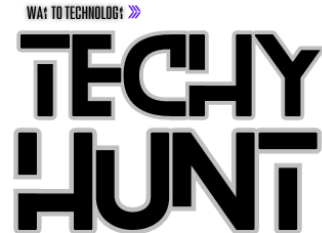🚀 Tech enthusiasts, brace yourselves! The digital landscape is evolving at lightning speed, and staying ahead of the curve has never been more crucial. Are you feeling overwhelmed by the constant flux of technological advancements? You’re not alone. In today’s rapidly changing world, keeping up with the latest trends can feel like chasing a moving target.
But fear not! TechyHunt Insights is here to be your compass in the ever-expanding tech universe. We’ve scoured the digital realm to bring you a comprehensive analysis of the hottest trends that are reshaping our world. From groundbreaking innovations to cybersecurity challenges, sustainable solutions to industry-wide transformations, we’ve got you covered. Join us as we embark on an exhilarating journey through the five key areas that are defining the future of technology and how we work. 🌟
Unveiling the Latest Tech Innovations
AI-powered breakthroughs
Artificial Intelligence continues to revolutionize various sectors, from healthcare to finance. Recent advancements in machine learning algorithms have led to more accurate predictive models and improved natural language processing capabilities. These breakthroughs are enabling more personalized user experiences and enhancing decision-making processes across industries.
Quantum computing advancements
Quantum computing is rapidly progressing, with major tech companies and research institutions making significant strides. This cutting-edge technology promises to solve complex problems exponentially faster than classical computers, potentially revolutionizing fields such as cryptography, drug discovery, and financial modeling.
5G and its transformative potential
The rollout of 5G networks is gaining momentum, offering unprecedented speeds and low latency. This next-generation wireless technology is set to enable a wide range of applications, from autonomous vehicles to smart cities, and revolutionize industries such as healthcare and manufacturing.
Emerging AR and VR applications
Augmented Reality (AR) and Virtual Reality (VR) technologies are finding new applications beyond gaming and entertainment. These immersive technologies are being adopted in fields such as education, training, and remote collaboration, offering innovative solutions for businesses and consumers alike.
| Technology | Key Benefits | Potential Applications |
|---|---|---|
| AI | Improved decision-making, personalization | Healthcare diagnostics, financial forecasting |
| Quantum Computing | Exponential problem-solving speed | Drug discovery, cryptography |
| 5G | High speed, low latency | Autonomous vehicles, IoT devices |
| AR/VR | Immersive experiences | Education, remote collaboration |
As these technologies continue to evolve and converge, we can expect to see even more groundbreaking innovations that will shape our future.
Cybersecurity in the Digital Age
As technology advances, so do the threats to our digital security. Let’s explore some cutting-edge approaches to protect our digital assets in this ever-evolving landscape.
Zero-trust architecture
Zero-trust architecture is revolutionizing cybersecurity by assuming no user or device is trustworthy by default. This approach requires continuous verification and authentication, even for users within the network perimeter.
Key components of zero-trust architecture:
- Identity verification
- Device validation
- Access control
- Least privilege principle
- Microsegmentation
AI-driven threat detection
Artificial Intelligence is becoming a game-changer in identifying and mitigating cyber threats. AI-powered systems can analyze vast amounts of data to detect anomalies and potential security breaches in real-time.
| AI Capability | Benefit |
|---|---|
| Pattern recognition | Identifies unusual behavior |
| Predictive analysis | Anticipates potential threats |
| Automated response | Reduces reaction time |
Blockchain for enhanced security
Blockchain technology offers a decentralized and tamper-resistant approach to data storage and transactions. Its immutable nature makes it an attractive option for securing sensitive information and verifying digital identities.
Applications of blockchain in cybersecurity:
- Secure data storage
- Identity management
- Supply chain security
- Secure IoT networks
As we move forward, these innovative approaches will play crucial roles in safeguarding our digital assets.
The Rise of Sustainable Tech
As technology continues to evolve, the focus on sustainability has become increasingly important. The tech industry is now embracing eco-friendly practices and developing innovative solutions to reduce its environmental impact.
Green Data Centers
Data centers are the backbone of our digital world, but they consume vast amounts of energy. Green data centers are addressing this issue by:
- Implementing energy-efficient cooling systems
- Utilizing renewable energy sources
- Optimizing server utilization through virtualization
| Feature | Traditional Data Center | Green Data Center |
|---|---|---|
| Energy Source | Primarily grid electricity | Renewable energy (solar, wind) |
| Cooling System | Energy-intensive air conditioning | Natural cooling, liquid cooling |
| Server Utilization | Often underutilized | Optimized through virtualization |
Eco-friendly Gadgets
Consumer electronics are becoming more environmentally conscious:
- Smartphones made from recycled materials
- Energy-efficient laptops with longer battery life
- Smart home devices that optimize energy consumption
Renewable Energy in Tech Infrastructure
Tech companies are investing heavily in renewable energy:
- Solar panels powering office buildings
- Wind farms for data centers
- Hydrogen fuel cells for backup power
E-waste Management Solutions
Addressing the growing problem of electronic waste:
- Modular device designs for easier repairs and upgrades
- Recycling programs for old electronics
- Development of biodegradable electronic components
As we move forward, these sustainable tech practices will play a crucial role in shaping a greener future for the industry.
Digital Transformation Across Industries

The digital revolution is reshaping industries at an unprecedented pace, driving innovation and efficiency across various sectors. Let’s explore how digital transformation is making waves in different fields.
Healthcare Tech Revolution
The healthcare industry is experiencing a paradigm shift with the integration of cutting-edge technologies. Telemedicine platforms, AI-powered diagnostics, and wearable health devices are revolutionizing patient care and medical research.
Fintech Disruptions
Financial technology is reshaping the way we manage money and conduct transactions. From blockchain-based cryptocurrencies to AI-driven investment algorithms, fintech innovations are challenging traditional banking systems.
Smart Cities and IoT Integration
The concept of smart cities is becoming a reality through the Internet of Things (IoT). Connected devices and sensors are optimizing urban infrastructure, enhancing public services, and improving quality of life for citizens.
EdTech Innovations
Digital transformation in education is creating new learning paradigms. Online courses, virtual reality classrooms, and adaptive learning platforms are making education more accessible and personalized than ever before.
AI in Manufacturing
Artificial Intelligence is revolutionizing the manufacturing sector, ushering in the era of Industry 4.0. Smart factories, predictive maintenance, and autonomous robots are enhancing productivity and reducing costs.
| Industry | Key Digital Transformations |
|---|---|
| Healthcare | Telemedicine, AI diagnostics, Wearables |
| Finance | Blockchain, AI investing, Digital banking |
| Urban Planning | IoT sensors, Smart grids, Connected transport |
| Education | Online learning, VR classrooms, Adaptive platforms |
| Manufacturing | Smart factories, Predictive maintenance, AI robotics |
As we’ve seen, digital transformation is reshaping industries in profound ways.
The Future of Work and Collaboration
As we explore the evolving landscape of technology, it’s crucial to examine how these advancements are reshaping the way we work and collaborate. The future of work is being redefined by innovative solutions that cater to the needs of a increasingly distributed workforce.
Remote Work Technologies
Remote work has become the new norm, fueled by cutting-edge technologies that enable seamless communication and collaboration. Here are some key innovations:
- Virtual Private Networks (VPNs)
- Cloud-based project management tools
- Video conferencing platforms
- Digital whiteboards
AI-Powered Productivity Tools
Artificial Intelligence is revolutionizing workplace efficiency, offering smart solutions that automate tasks and enhance decision-making. Consider these AI-driven tools:
- Intelligent scheduling assistants
- Natural language processing for email management
- Predictive analytics for project planning
- AI-powered content creation and curation
Virtual Team-Building Platforms
| Platform Type | Features | Benefits |
|---|---|---|
| Virtual Reality | Immersive 3D environments | Enhanced engagement |
| Gamification | Team challenges and quests | Improved morale and bonding |
| Social networking | Interest-based groups | Stronger interpersonal connections |
Cybersecurity for Distributed Workforces
With remote work comes new security challenges. Organizations are implementing robust measures to protect their distributed teams:
- Multi-factor authentication
- Zero-trust network access
- Endpoint detection and response (EDR) solutions
- Regular security awareness training
As we look ahead, these technologies will continue to evolve, shaping a more flexible, efficient, and secure work environment.
Conclusion
The tech landscape is constantly evolving, with innovations reshaping our digital world at an unprecedented pace. From groundbreaking advancements to enhanced cybersecurity measures and sustainable technologies, the industry is primed for exciting developments. As digital transformation sweeps across various sectors, it’s clear that adaptability and forward-thinking are crucial for businesses and individuals alike.


1 Comment
süpürge tamirci Ümraniye online Servis kalitesinden çok memnun kaldım. https://aubameyangclub.com/read-blog/4558